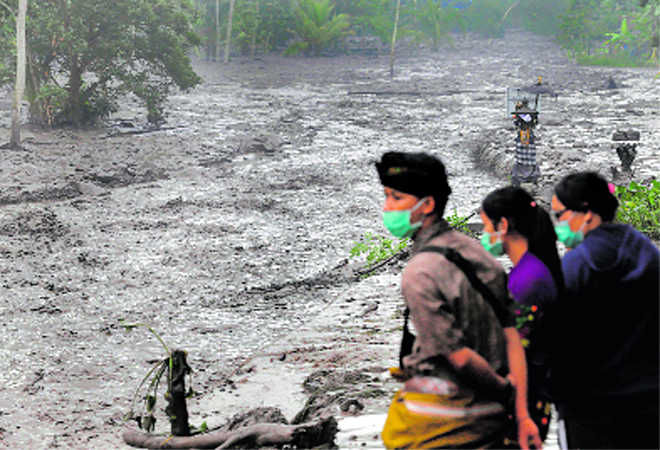Karangasem, November 28
Indonesia kept the airport on Bali closed on Tuesday as ash from an erupting volcano swept the holiday island, leaving thousands of tourists stranded, and authorities tried to persuade villagers living near the crater to leave their homes.
A total of 443 flights, both domestic and international, were affected by the closure of the airport, about 60 km (37 miles) from Mount Agung which is spewing smoke and ash high into the sky.
“Aircraft flight channels are covered with volcanic ash,” the transport ministry said in a statement, citing aviation navigation authorities.
The airport - the second-biggest in Indonesia - will be closed at least until 7 a.m. on Wednesday (2300 GMT on Tuesday), the ministry said.
Frustration at the airport was starting to boil over, with an estimated 2,000 people attempting to get refunds and reschedule tickets. “There are thousands of people stranded here at the airport,” said Nitin Sheth, a tourist from India. “They have to go to some other airport and they are trying to do that, but the government or authorities here are not helping.” Others were more relaxed.
“No, there’s not a lot of information ... very little. (But) it’s all right. We’re on holidays so it doesn’t matter. We don’t know what’s going to happen but we can get back to the bar and have another drink,” said Matthew Radix from Perth.
The airport operator said 201 international flights and 242 domestic ones had been hit.
Ten alternative airports had been prepared for airlines to divert inbound flights, including in neighbouring provinces, the operator said, adding it was helping people make alternative bookings and helping stranded travellers.
The airport on Lombok island, to the east of Bali, had reopened as wind blew ash westward, towards the southern coast of Java island. — Reuters
Unlock Exclusive Insights with The Tribune Premium
Take your experience further with Premium access.
Thought-provoking Opinions, Expert Analysis, In-depth Insights and other Member Only Benefits
Already a Member? Sign In Now










